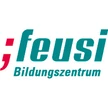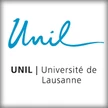Practitioner recognized by the complementary health insurance funds affiliated with ASCA Languages spoken: French - English - Italian - German Gestalt psychotherapy Art therapy Couples therapy Personal development Psycho-corporeal work Therapeutic hypnosis “Because our life is the instrument with which we experience the truth” (Thich Nhat Hanh) What is Hypnosis? Hypnosis is a natural state that we all experience on a daily basis without even realizing it, such as when driving, walking, or being deeply absorbed in a book or a film. It is an altered state of consciousness where the unconscious takes center stage while consciousness steps back, transforming itself into a calm observer. In this state, the mind is receptive and open to new ideas, new perceptions, and most importantly, new ways of approaching life's challenges. The hypnotic state offers fertile ground for learning, discovery, and self-exploration. It allows you to bypass conscious barriers such as fears, limiting beliefs, or psychological defense mechanisms. By accessing this state, the brain uses its internal resources to highlight hidden skills and promote desired changes. This allows you to redefine perceptions and pave the way for more appropriate and satisfying behaviors. Stimulating Creativity Hypnosis acts as a lever to stimulate creativity, an essential quality for shaping a reality that better matches our deep aspirations and needs. It allows you to question habitual thought patterns, free yourself from conventions, and make room for new perspectives. In this space of mental freedom, we can imagine new solutions to old problems, as if we were creating a blank canvas where all possibilities are possible. This creative process is at the heart of the hypnotic experience. It encourages us to explore new paths, to move away from preconceived ideas and to consider alternative solutions. By using hypnosis, we learn to mobilize our internal resources effectively and to integrate them into our daily lives. This state of openness allows us to revisit our representation of ourselves and to reconfigure our behaviors so that they are in line with our desires and our objectives. A Brief, Solution-Oriented Therapy Hypnotherapy is often called brief therapy because it focuses on solutions rather than problems. At the beginning of each session, the therapist discusses with the person their objectives and the positive suggestions that will be explored during the hypnotic trance. This approach aims to redirect attention to aspects of life that are often neglected by the conscious mind. Hypnotic induction is a phase where the therapist uses techniques to modify the state of consciousness, thus promoting the hypnotic state. Contrary to what one might believe, the person under hypnosis remains active and maintains total control over the process. At any time, they can choose to engage or interrupt the experience. The role of the hypnotherapist is to accompany, suggest and guide using images, metaphors and propositions that resonate with the unconscious. Hypnosis does not seek to impose changes, but rather to reveal those that the person is ready to consider and integrate into their life. It allows them to free themselves from habits that have become obsolete and to reconnect with ways of doing things that are more in line with their current aspirations. On average, hypnotherapy takes place over a cycle of three to four sessions. Each session brings new perspectives and gives the person time to assimilate and put into practice the changes in their daily life. If necessary, additional cycles can be considered to deepen the work undertaken. Hypnosis as a Complement to Medical Care

















